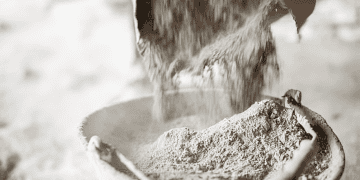A coalition of cement importers has urged the Department of Trade and Industry (DTI) to reconsider imposing further restrictions on cement imports into the Philippines. The group contends that such measures could lead to increased prices and asserts that recent investigations into import volumes are unwarranted and potentially detrimental.
In a statement released over the weekend, the importers emphasized that the volume of cement imports has remained consistent over recent years. They attribute the observed double-digit growth rates in certain periods to the resurgence of demand following the easing of COVID-19 quarantine measures. The importers argue that these increases are not indicative of an import surge but are responses to fluctuations in domestic production and demand.
The position paper, addressed to the DTI, was collectively issued by Cohaco Merchandizing & Development Corp., Fortem Cement Corp., NGC Land Corp., Pabaza Import and Export Inc., and Philcement Corporation. The document highlights that import volumes have been adjusted to compensate for reduced local production, ensuring that the market’s needs are met without causing an oversupply.
This development follows an earlier directive from Trade Secretary Cristina Roque, who, in accordance with the Safeguard Measures Act, initiated a preliminary investigation into cement importation covering the years 2019 to 2024. The DTI’s investigation was prompted by data indicating increases in cement imports: 10% in 2020, 17% in 2021, and 5% in 2023. Additionally, the share of imports in the domestic market rose from 30% in 2019 to 47% in 2023, reaching 51% in the first half of 2024.
The importers contend that these figures do not accurately represent the volume of imported cement available in the Philippine market, as a portion is utilized as raw material for locally manufactured cement. They assert that the uptick in importation is a direct result of decreased domestic production combined with the necessity to fulfill ongoing demand, rather than an unwarranted surge that would justify the implementation of safeguard measures.
Conversely, local cement manufacturers and the Federation of Philippine Industries (FPI) have expressed support for the DTI’s investigation. They emphasize the pressing need to protect the domestic cement industry from potential adverse effects of increased importation, citing concerns over market share displacement and the long-term viability of local producers.
As the DTI proceeds with its investigation, stakeholders from both importing and manufacturing sectors await the findings, which will influence future policy decisions regarding cement importation and industry regulations in the Philippines.
Stay informed on supply chain news at The Supply Chain Report. Free international trade tools are at ADAMftd.com.
#CementImportPolicy #PhilippineTrade #DTIInvestigation #CementIndustryPH #TradeRegulations #ImportRestrictions #ConstructionMaterialsPH #MarketDynamics #EconomicPolicyPH #IndustryDebate

















